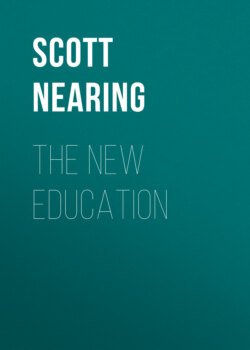Читать книгу The New Education - Scott Nearing - Страница 16
На сайте Литреса книга снята с продажи.
II Social Change
ОглавлениеHow well does this principle of change apply to the organization of society! The absolute monarchy of one age yields to the semi-democracy of the next. Yesterday the church itself traded in men’s bodies—holding slaves, and accepting, without question, the proceeds of slavery. To-day machines replace men in a thousand industries. To-morrow slavery is called into question, until in the dim-glowering nineteenth century, men will struggle and die by tens of thousands;—on the one side, those who believe that the man should be the slave; on the other, those who hold that the slavery of the machine is alone necessary and just. Thus is every social institution altered from age to age. Thus is effected that transformation which men have chosen to call progress.
How profoundly does this truth apply to the raw material of education—the children who enroll in the schools! Under your very eyes they lose their childish ways, feel their steps along the precipice of adolescence, enter the wonderland of imagery and idealism, and pass on into the maturity of life. How vain is our hope that the child may remain a child; how worthless our prayer that adult life shall never lay her heavy burden of cares and responsibilities upon his beloved shoulders. Even while you raise your hands in supplication, the child has passed from your life forever, leaving naught save a man to confront you.
From these mighty scythe strokes which change sweeps across the meadows of time, naught is exempt. The petals fall from the fairest flower; the bluest sky becomes overcast; the greatest feats of history are surpassed; and the social machinery, adequate for the needs of one age, sinks into the insignificance of desuetude in the age which follows. Thus does the inevitable come to pass. Thus does the social institution, wrought through centuries of turmoil and anguish, become useless in the newer civilization which is arising on every hand. The educational system in its inception was well founded, but the changes of time invalidate the original idea. Yesterday the school fulfilled the needs of men. To-day it fails to meet a situation which reshapes itself with each rising and each setting of the sun.
Each epoch must have its institutions. With the work of the past as a background, the present must constantly reshape the institutions which the past has bequeathed to it. These modified institutions, handed on in turn by the present, must again be rebuilt to meet the needs of the future; and so on through each succeeding age.
